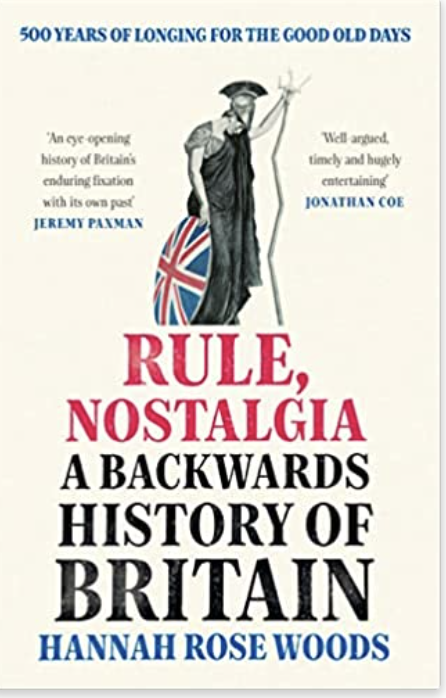
Lost to Chauvinism and conservatism over the past decade


Cultural historian, Hannah Rose Woods explores how the golden ages have haunted Britain since medieval times including the nostalgic 2012 Olympic summer when the UK seemed confident to its past imperial, European identity, and London laid claim to the title of the world’s greatest capital city, with its progressive, outward-looking mayor Boris Johnson. Danny Boyle’s celebrated opening ceremony was a social-democratic pageant of democracy.
But Hannah Rose Wood’s new history of nostalgia reminds us that this was also the London of the 2011 riots, the aftermath of the 2008 financial crash and riven with fears over the next Islamic terrorist attack. 2012, Team GB spirit can today be reimagined as an account of all that has been lost to chauvinism and Conservatism over the past decade.
In 1688, Johannes Hofer, a Swiss physician charted the impact of nosts (homecoming) and algia (pain) on Swiss soldiers fighting abroad.
For hundreds of years, the British have mourned the loss of older national identities and called for a revival of simple, better, ways of life – from Margaret Thatcher’s call for a return to “Victorian values” in the 1
In the 1980s, to William Blake’s protest against the dark satanic mills of the Industrial Revolution that were fast transforming England’s green and pleasant land, to sixteenth-century observers looking back wistfully to a “Merry England”, before the upheavals of the Reformation. In the 1500s, the country was nostalgic for the vision of a home that looks very different from our own.
The “Good old days” beginning in the present, including the Tudors, through five hundred years of Britain’s perennial fixation with its own past to reveal that history is more complex than we care to remember, including the enduring and seductive emotion across hundreds of years of change, Wood separates the history from the fantasy, debunks pervasive myths about the past and illuminates the remarkable influence that nostalgia’s perpetual backward glance has had on British history, politics, and society.
Woods Interrogate national characters, emotion, identity, and myth-making that elucidates how this nostalgic isle’s history was written, rewritten and remembered.
The immediate target of Rule, Nostalgia, is that cadre of Brexiters yearning for a lost imperial past. “ This is Magna Carta… It’s Waterloo, It’s Agincourt. It’s Crecy. We win all of these things”, as Jacob Rees-Mogg told the 2017 Tory Party Conference. Woods suggests are the New Right culture warriors who have so immersed in themselves the cloying certainties of the past they seem unable to cope with much historical rigour. Oliver Dowden in 2021 spoke of the need to “defend our culture and history from the noisy minority of activists constantly trying to do Britain doom”.
British prime minister Stanley Baldwin’s inter-war summoning of a lost, bucolic England. Winston Churchill said about new towns and welfare statism, “ All this stuff about planning and compensation and betterment”.
In the 1660s Restoration ( all the old holidays, with their mirth) should be set up again said, William Cavendish. May Games, Morris Dances, the Fool and the Hobby Horse, must not be forgotten) to the gothic revival of the fast industrialising Victorians to, the Victorian values of 1980s Thatcherism.
Woods also focuses on the nostalgia experienced by evacuated colonists. One post-independence returnee said “ I remember the pain and the loss and the homesickness of leaving India, and home arriving in cold grey post-war not-very-friendly Britain.
Victorian fears of urban degeneration and widespread anxiety about anxiety.
Rule, Nostalgia: A Backwards History of Britain by Hannah Rose Woods, WH Allen£20, 400 pages.
